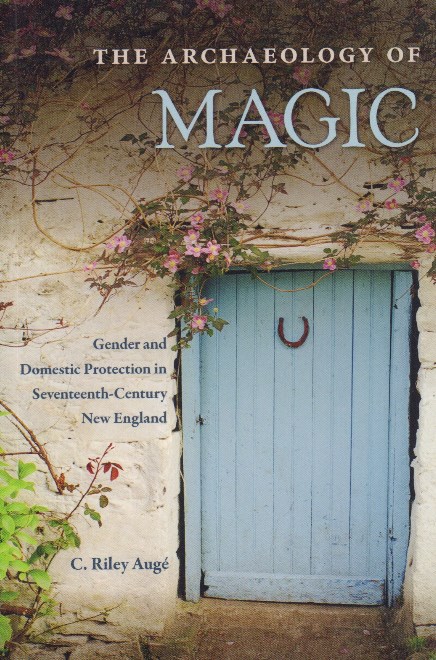The archaeology of magic : gender and domestic protection in seventeenth-century New England / C. Riley Augé.
Yer Numarası
A.IX/9914
ISBN
9780813066110 (hardback)
9780813057484 (pdf)
9780813057484 (pdf)
Dil Kodu
İngilizce
Kütüphane
Türk Tarih Kurumu Kütüphanesi
Yazar
Eser Adının Farklı Biçimi
Gender and domestic protection in seventeenth-century New England
Yayın Bilgisi
Gainesville : University Press of Florida, ©2020.
Fiziksel Niteleme
232 sayfa ; 24 cm
Genel Not
İndeks s. [229]-232.
Bibliyografi, vb. Notu
Bibliyografya s. [205]-227.
Bibliyografik notlar s. [201]-204.
Bibliyografik notlar s. [201]-204.
İçindekiler Notu
Archaeology and gendered magic : An introduction -- The nature of magic -- The power of magic -- Worldview and magical mindset -- Motivations, expectations, and tribulations -- Words from the past -- Traditional wisdom -- Excavating magic -- Archaeology and magic : conclusions.
Özet, vb.
“In The Archaeology of Magic , C. Riley Augé explores how early American colonists used magic to protect themselves from harm in their unfamiliar and challenging new world. Analyzing evidence from the different domestic spheres of women and men within Puritan society, Augé provides a trailblazing archaeological study of magical practice and its relationship to gender in the Anglo-American culture of colonial New England. Investigating homestead sites dating from 1620 to 1725 in Massachusetts, Rhode Island, and Maine, Augé explains how to recognize objects and architectural details that colonists intended as defenses and boundaries against evil supernatural forces. She supports this archaeological work by examining references to magic in letters, diaries, sermons, medical texts, and documentation of court proceedings including the Salem witch trials. She also draws on folklore from the era to reveal that colonists simultaneously practiced magic and maintained their Puritan convictions. Augé exposes the fears and anxieties that motivated individuals to try to manipulate the supernatural realm, and she identifies gendered patterns in the ways they employed magic. She argues that it is essential for archaeologists to incorporate historical records and oral traditions in order to accurately interpret the worldviews and material culture of people who lived in the past.” -- Arka kapak.


